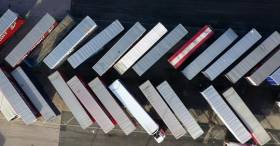Displaying items by tag: RoRo Ferries
Irish Sea Ports Ready To Roll to Save the UK from Brexit Trade Traffic
According to one of the UK's ports' operators, the Peel Ports Group say they have the capability to limit the impact (of Brexit) on the Britain's expected departure from the EU on 31 October which is expected to have on trading.
Among the ports of the Group are Liverpool, Heysham and Sheerness (London Medway) which have a combined capacity to handle 1 million RORO (roll on, roll off) units per year. The ports could play a vital role in ensuring cargo flow freely through UK ports as trade is expected to be challenging across the Dover Straits following Brexit.
The ports on the Irish Sea and on the Medway have already taken steps to improve resilience ahead of Brexit. These include increased throughput capacity for HGV trailers and storage to support smooth trade operations by roll-on roll-off (Ro-Ro) ferries.
Heysham has unrestricted access to the Irish Sea and already caters for numerous daily Ro-Ro sailing from providers including Seatruck, Stena Line and the Isle of Man Steam Packet.
Peel Ports says that transporting non-perishable freight unaccompanied is faster and more cost effective than relying on driver-accompanied hauliers - of whom there are an acute shortage of across the continent - to transport cargo from Europe to the UK and vice versa.
Routing via ports such as London Medway would be just as efficient as the existing options through the Dover Straits, as although the sea leg is longer, road miles are reduced, according to Peel Ports. They also added Door-to-door, cargo owners could reduce cost, increase resilience, avoid congestion and reduce carbon emissions.
For more on this story click here.
























































